NOVIDADES
A Newsletter Published By

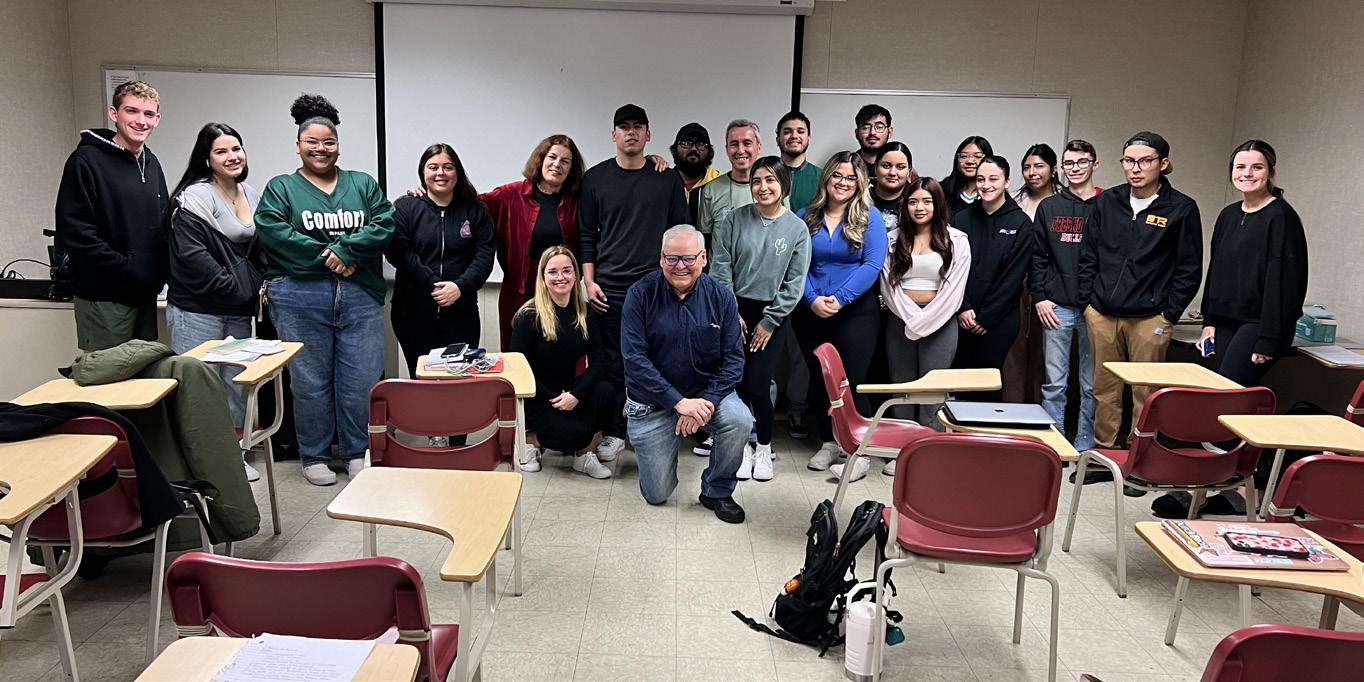

Five Years and Beyond…
We believe that the Portuguese Beyond Borders Institute (PBBI) at Fresno State has been pivotal in promoting Portuguese culture, heritage, and education in Central California. Since its establishment in February 2019, PBBI has become a cornerstone of Portuguese at Fresno State, fostering the teaching of the Portuguese language and Culture, academic research, exchanges with students and faculty with the University of the Azores, literary and historical publications, conferences, panels discus-sions, oral history collection, and community engagement.
The Portuguese community in Central California, immigrants, and their descendants from the islands of the Azores has a rich history dating back to the latter part of the nineteenth century when immigrants from Portugal and the Azores arrived in search of better opportunities. Over the decades, this community has grown and flourished, contributing to the regions cultural diversity and economic development. However, the need to preserve Portuguese heritage and support academic endeavors related to Portuguese studies became increasingly evident. The Community needed a hub to preserve its history and create its narratives.
Fresno State established the Portuguese Beyond Borders Institute in 2019 to respond to these needs. The institute was founded to promote global research, education, and outreach focused on the Azorean Diaspora and Portuguese experiences in Central California. Since its inception, PBBI has tried its best to advance these objectives through various programs and initiatives.
PBBI has been a driving force in building a holistic program encompassing the realities of the Diaspora in the California multicultural landscape. PBBI has facilitated collaborations between scholars, students, and community members, producing valuable conferences, presentations, documentaries, and informational and cultural platforms that bring the community together, as it reflects on what has been done and what needs to be done. These efforts have helped deepen our understanding of Portuguese history, culture, language, and contributions to society, benefiting academia and the wider community.
One of PBBIs core missions is to promote cultural exchange between Portugal, the Azores, Madeira, and Central California. Through partnerships with cultural institutions, universities, and community organizations, PBBI has organized cultural events, conferences, lectures, and performances that showcase the richness and diversity of Portuguese heritage. These initiatives have fostered cross-cultural dialogue, appreciation, and understanding among people of different backgrounds.
PBBI has actively engaged with the Portuguese community in Central California, offering events in the northern and southern San Joaquin Valley. Through our Oral History Program and our news and cultural platforms (Novidades and Filamentos), Bruma Publications, High School Student days, poetry sessions, literary events, and many others, we believe that PBBI has provided valuable opportunities for community members to connect with their roots, preserve traditions, and pass on cultural knowledge to future generations.
The future is promising for PBBI-Fresno State if we continue to have community engagement and support. We must create more opportunities for our students, faculty, and the community. As PBBI continues its mission, we will work tirelessly to remain a beacon of Portuguese identity and a bridge connecting communities across borders. Thank you all for being so supportive! In this Edition of NOVIDADES we will showcase some of our work and our various segments that bring together this Institute and our Diaspora in this great state.
Diniz Borges, Founding Director
Director’s Message
oral history farming delegation shared seas untold stories
PBBI events summary in this issue

Spring 2024 4th Edition
Legacy Pride in Family, Religion, and Tradition
José Filipe Macedo Madruga was named after his grandfather, cousin, uncle, etc! José was a popular name in his family and came from St. Joseph. Similarly, all of the girls in José’s Family were named after the Blessed Mother Mary, aka Maria. José was born on March 24th, 1949 in Silveira Lajes do Pico, Açores to Filipe and Maria Madruga. His parents were from Pico and had ten kids, with José being the second oldest of five brothers and four sisters. Some of José’s childhood memories on the island of Pico include working with his dad, Felipe, and helping his mom, Maria. He remembers getting up early every morning to work in the fields and recalls when Filipe tried to teach him how to milk a cow at six- something that didn’t go too well then but a skill José later figured out. Helping his mom by waking up early to pick oranges so the family could have them with breakfast and sweet potatoes was another fond childhood memory for José. He also (not so fondly) remembers going to school around the age of seven and watching people working outside plowing fields with bulls, wishing he was them. José never cared too much for school and said those four years were stressful. He was in school until the fourth grade, which was commonplace then.

At fifteen, Joseph “Joe” Madruga came to California with his mom and siblings in October of 1964. His dad had come first in December of 1963 to start work and eventually earned enough money to bring the rest of his family over. Maria Madruga made the overseas trek with her ten kids, who spoke no English. Before she left Pico, a friend wrote a note that stated Maria’s name, where she was going, and her cousin’s phone number, then pinned it to the front of her dress. Joe and his Family took a boat from Pico to São Miguel, then flew to Santa Maria, where they got on another plane headed for Fresno and, from there, made it to their final destination of Leemore, where Maria’s cousin lived The Madruga family reunited and settled in Hanford, where they lived for about nine years. Filipe and Maria decided to leave their island of Pico so their children could have a better life and brighter future.
They ended up in the Central Valley thanks to Maria’s cousin from Lemoore, who wrote a letter on the family’s behalf stating that they would be taken care of if allowed to come to America.

In 1971, Joe was invited by two priests from Pico to go to a young adult’s retreat in Turlock, and he decided to go. These priests were working on starting a Portuguese church community in Turlock since many Azorean immigrants were settling there- today, the church they established is known as Our Lady of the Assumption (OLA). Eventually, the rest of Joe’s Family moved to Turlock and made themselves at home among the Portuguese-American community where Joe has resided ever since…fifty years to be exact! As far as adjusting to life in America, Joe remembers being put into eighth grade as a fifteen-year-old and hating it because he didn’t know anything in English. Still, he started working milking cows shortly after. He could do this because Joe didn’t go to high school, something he sometimes regrets but says he didn’t have a choicehe needed to work to help his family, plus he isn’t a book person.

Keeping Portuguese roots through a solid Portuguese identity was very important for the Madruga household after immigrating to the United States. Local Portuguese priests and Our Lady of the Assumption played vital roles through Portuguese masses, retreats, festas, and the bodo de leite. Joe met his wife, Connie, at an Our Lady of the Assumption retreat! Maria and, eventually, her daughters still made traditional foods such as sopa de couves and arroz doce. The family continued to speak Portuguese since Joe’s mom never larned English, and listening to filarmónicas never got old. Once Joe married Connie Aguiar, an immigrant from the island of São Jorge, in 1986, they passed down their Portuguese traditions to each of their five kids- Helen, Isabel, Paul, Teresa, and Daniel. These traditions include the Catholic faith, attending festas and the bodo de leite, cooking traditional meals, speaking Portuguese, and listening to filarmónicas.
Novidades, 4th Edition
Now, Joe has four grandchildren- Melanie, Natalya, Joseph, and Oliver. He has enjoyed seeing their parents continue passing the same Portuguese traditions onto the next generation. Naturally, Joe and Connie have played roles in this as well… no one can resist Avó’s arroz doce!
Joe Madruga has had the pleasure of returning to the Açores islands three times! The first time was in 1995- thirty-one years after he had come to America. Joe said on this trip that he found it interesting to see the changes that occurred since he had left but wasn’t too surprised since friends and family had been telling him of these changes for years. These changes included electricity, running water, bathrooms inside houses, and cars. Joe’s next trip was in 2006, with nothing too different compared to the trip in ‘95; then he went again in 2018 as part of a group with the Teams of Our Lady of the Assumption- a church group he and Connie are heavily involved with. Finally, Joe, Connie, their children, spouses, and grandchildren will go to the Açores in July of 2024 to reconnect with their roots.

The Portuguese-American community and Joe fit together like a hand in a glove. His experience within the Central Valley comes from playing a part in building Our Lady of the Assumption Catholic Church in Turlock. Joe has loved seeing the church’s growth and how generations of Portuguese-Americans continue to gather together there. His proudest moments with the Portuguese-American community come from seeing people grow in their faith as he and his wife are still actively involved in their church (OLA), which has caused them to form deep connections with parishioners. Joe Madruga is a proud Portuguese-American. He is most proud of his yard! Just kidding, but he does have a green thumb and way with farm animals- the agricultural industry has played a significant role in Joe’s life as he worked in poultry production and on dairies, owning his own for many years. Joe is genuinely most proud of his marriage to Connie and their Family; according to him, “I may not be rich in worldly things, but I am rich in family”. He is shaped by being Portuguese-American with how he saves money, doesn’t waste, and is convinced that if you go outside when your hair’s a little wet, you’ll get a cold. In other words, Joe has been affected by being Portuguese-American in all aspects of his life, from his finances to old wives’ tales!
Today’s Portuguese-American community differs significantly from the one Joe grew up in since everything changes as new generations take over. He is curious about what will happen to traditions- will they continue or die off? Only time will tell, but Joe hopes these traditions will continue and young people will express interest in their roots.
To Joseph “Joe” Madruga, being Portuguese-American means working hard and always making time for Jesus and Family because those are the two consistent things in life. From José Filipe Macedo Madruga to Joseph “Joe” Madruga, he has and always will remember his Azorean roots and maintain a robust Portuguese identity.
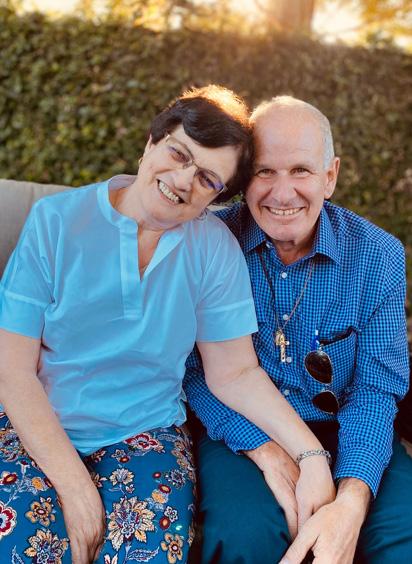


Novidades, 4th Edition
Farming Delegation from Portugal at Fresno State
PBBI-Fresno State hosted, with the Jordan College of Agricultural Science and Technology on the 15 th of February a visiting delegation of Farmers. Agricultural Leader, Researchers and Two Mayors from mainland Portugal algo with the consul-general of Portugal in San Francisco, Pedro Pinto and Henrique Gomes from AICEP.
Pedro Espadinha
ADER-AL (Local Development Association) President
José Nunes Polytechnic Institute of Portalegre / ADER-AL Professor / Director
António Carrilho
ADER-AL (Local Development Association) Technician
Isabel Abreu ADER-AL (Local Development Association) Coordinator
Fermelinda Carvalho Portalegre Farmers Association/Portalegre Municipality President / Mayor
Vitor Ricardo Sociedade Agro-pecuária do Vale Feijoal lda Farmer
Nuno Carvalho Association of Forest Producers Director
Miguel Gonçalves Xévora River Irrigation Association Director
Pedro Santos Cereal Producers Group Director
Márcia Mendes A2S (Local Development Association) Coordinator
José Barroso Farmer Farmer
Luís Correia Rio Maior Farmers Association Director
João Mendes APRODER (Local Development Association) Director
Conceição Pereira TAGUS (Local Development Association) Coordinator
Manuel Jorge Valamatos TAGUS (Local Development Association) / Abrantes Municipality President / Mayor
Luís Damas Abrantes, Constância, Sardoal and Mação Farmers Association President
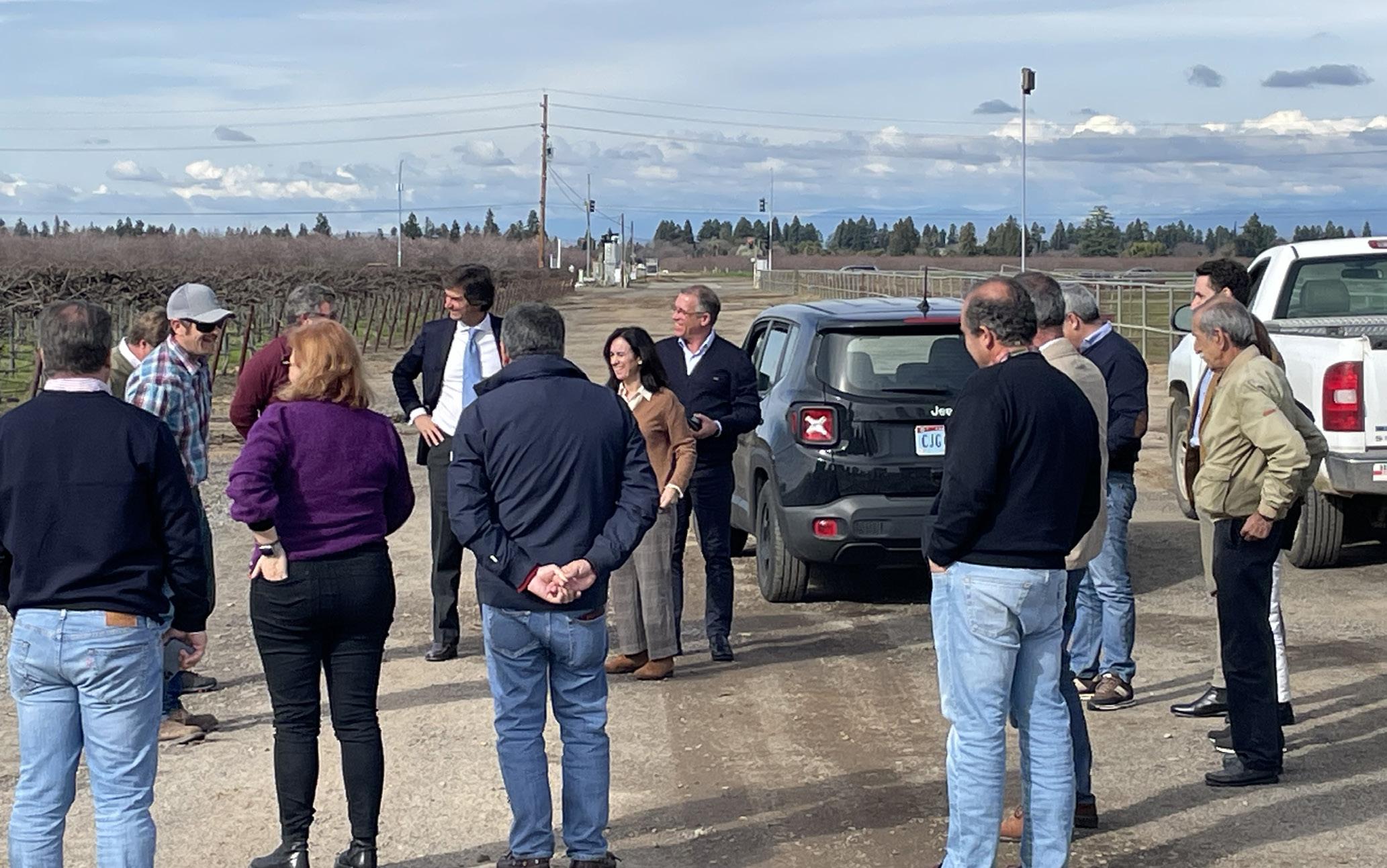
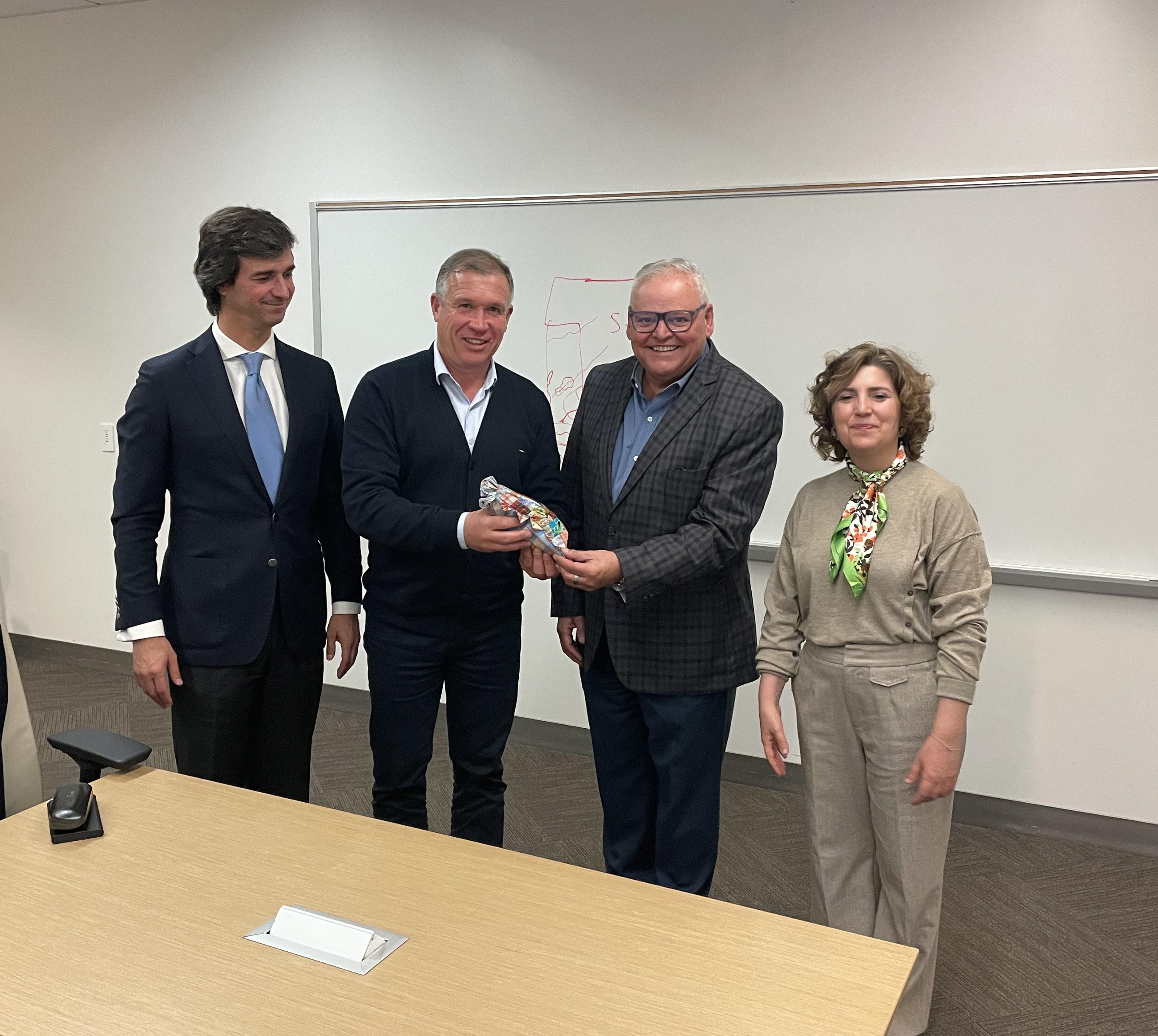
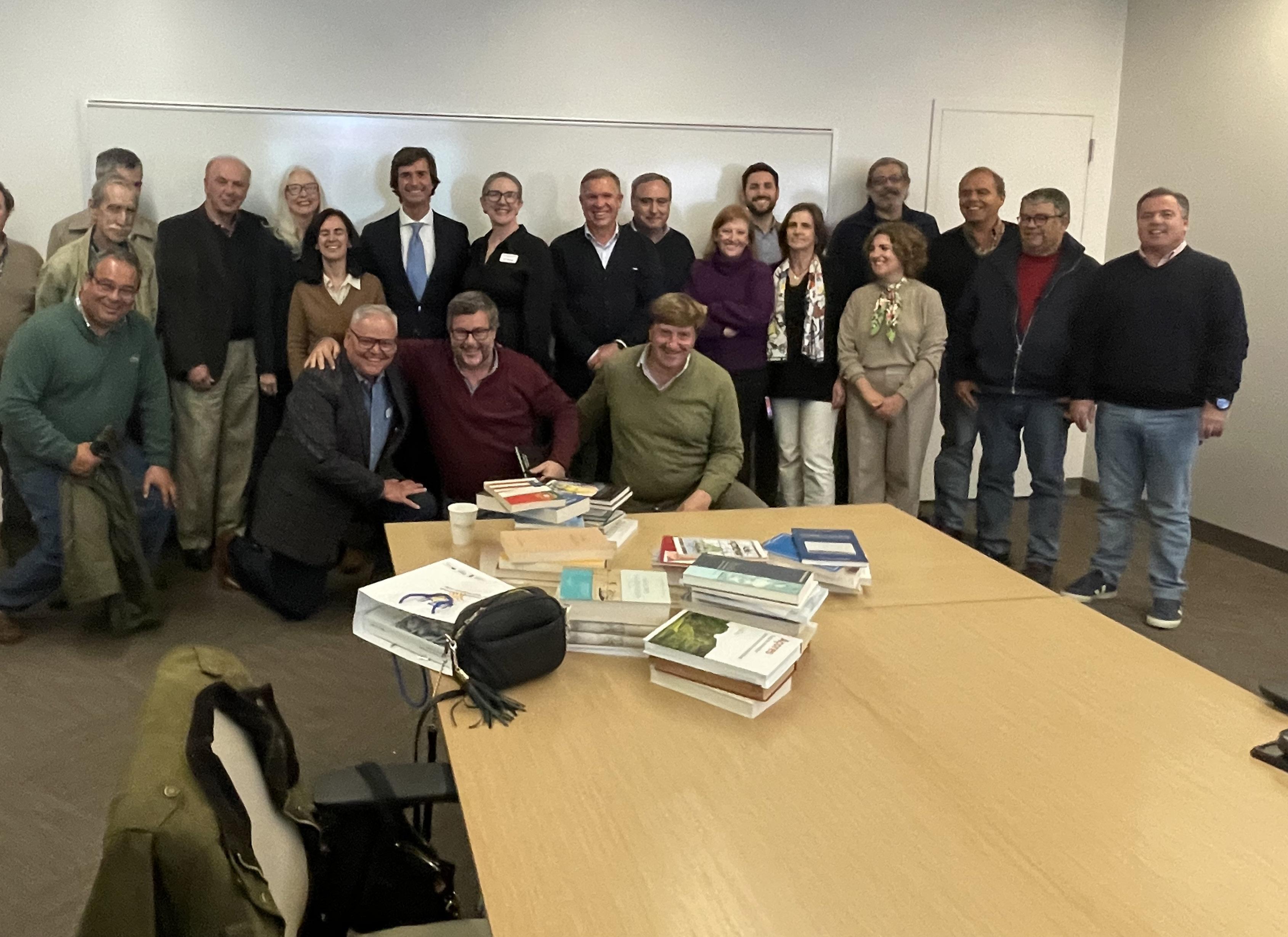
Sailing on Shared Seas: Portuguese Poets in Translation during Portuguese Immigrant Week in California
“Poetry is when an emotion has found its thought and the thought has found words.”
Robert Frost
Translating poetry from Portuguese to English and bringing the translated poets to the United States can be a powerful bridge between cultures, fostering understanding and appreciation. Poetry, often described as the language of the soul, holds immense cultural significance, reflecting the nuances of a societys history, values, and experiences. Translating Portuguese poetry into English opens doors to a wealth of literary treasures that might remain inaccessible to English-speaking audiences, not just those of Portuguese ancestry; over a million in the United States dont speak Portuguese. These translations provide a window into the rich tapestry of Portuguese culture and how contemporary Portuguese Poets view the human condition, allowing readers to explore themes, emotions, and perspectives that transcend linguistic barriers.
Bringing translated poets from Portugal to the United States to speak to college students and engage with communities creates opportunities for meaningful cultural exchange. Hearing directly from the poets themselves adds depth and authenticity to the experience of engaging with their work. It allows for a deeper understanding of the cultural context behind the poetry and offers insight into the creative process. These interactions, as we saw with the presence of Angela Almeida and Alberto Pereira at Fresno State and Berkeley City College, facilitate dialogue and connections between individuals from different backgrounds, fostering empathy, mutual respect, and appreciation for diversity.
For college students, encountering translated Portuguese poetry and engaging with the poets can be a transformative experience. It offers a unique opportunity to expand their worldview, challenge their assumptions, and develop a deeper appreciation for the interconnectedness of humanity. Exposure to diverse perspectives through poetry can inspire students to think critically, cultivate empathy, and become more culturally literate. Additionally, interacting with poets from Portugal provides students with valuable insights into the complexities of translation, language, and the art of poetry itself. At Fresno State,

y nearly 50 students could listen and engage in Angela Almeidas presentation about the history and the richness of Azorean Poetry and Alberto Pereiras view on contemporary poetry and what it represents to him.
Bringing translated poets from Portugal to speak to college students also has the potential to enrich academic discourse and inspire new avenues of research and study. Scholars and students can benefit from engaging directly with the poets, gaining firsthand knowledge of their creative processes, influences, and perspectives. These interactions can spark interdisciplinary collaborations, leading to innovative approaches to studying literature, language, and culture. Hosting translated poets on college campuses, such as Fresno State did last week, with the President of the University hosting a dinner with administration, faculty, and community members, can enhance the cultural vibrancy of academic communities, fostering a spirit of curiosity, intellectual exploration, and cross-cultural dialogue.
Beyond academia, connecting translated poets with communities across the United States can promote cultural exchange and understanding on a broader scale. Poetry can transcend boundaries, resonating with people from all walks of life. By bringing Portuguese poets to speak in diverse communities, we create opportunities for individuals to connect with the universal themes and emotions expressed in their poetry. This happened in Tulare through the collaboration of the Tulare-Angra Sister City Foundation and the California Portuguese- American Coalition (CPAC), and Modesto with the Portuguese Fraternal Society of America (PFSA) and CPAC. These interactions foster a sense of shared humanity, strengthening bonds between people from different cultural backgrounds and fostering a more inclusive and interconnected society. Translating Portuguese poetry and bringing the poets to the United States catalyzes cultural enrichment, dialogue, and mutual understanding.
Born in Lisbon, Alberto Pereiras work reflects both the urban complexity of his surroundings and the timeless essence of the human experience. Through vivid imagery and metaphor, Pereira skillfully weaves the personal and universal in a perfect symbiosis utilizing the most refined poetic language. His poems invite readers to reflect upon their experiences and emotions. With a keen eye for detail and a deep sense of empathy, Pereira sheds light on the struggles of the marginalized and the disenfranchised, giving voice to those whose stories might otherwise go unheard. His poetry is powerful and unique, constantly refined in every single detail. Through translating his work into English and published by Bruma Publications and Letras Lavadas, Pereiras poetry has reached readers far beyond the borders of Portugal, fostering cross-cultural dialogue and appreciation. His visit to the United States to speak to college students and connect with communities has further solidified his role in Portuguese contemporary poetry, bridging the gap between cultures and fostering a deeper understanding of the human experience. Through his evocative verse, Pereira invites readers to explore the depths of the human soul, confronting lifes complexities with courage and compassion. His work serves as a beacon of hope and inspiration, reminding us of the transformative potential of poetry to connect us across borders and unite us in our shared humanity.
Born on the island of Faial, but having lived most of her life in São Miguel island, Ângela Almeida writes with remarkable skill and sensitivity. Her verses resonate with the rhythm of the Atlantic waves and the whisper of wind through volcanic landscapes, constantly concerned with the human experience and the common bonds we all share. At the heart of Almeidas work lies a profound concern for the human condition, expressed through themes of identity, belonging, resilience, and the complexities of the human experience. Her poetry serves as a poignant reflection of the struggles and triumphs inherent in the human journey, resonating with readers on a deeply personal level. Her work serves as a testament to the resilience of diasporic communities, grappling with questions of cultural identity, assimilation, and the preservation of heritage in the face of displacement and change. Through her evocative imagery, empathetic portrayal of human emotion, and unwavering commitment to social justice, she reminds us of the interconnectedness of our shared humanity. Her work invites readers to contemplate the depths of the human condition, fostering empathy, understanding, and a renewed sense of solidarity across borders and cultures. Translated into English, her work is now available to a broad audience and, indeed, to the over one and a half million Americans of Portuguese ancestry in the US and Canada who dont speak or read Portuguese but are still connected to their heritage.
PBBI at Fresno State was proud to put this program together during Portuguese Immigrant Week in California. Poetry is vital to the world because it speaks to what it means to be human. It celebrates our capacity for creativity, empathy, and connection, enriching our lives with beauty, meaning, and a deeper understanding of ourselves and the entangling world around us.


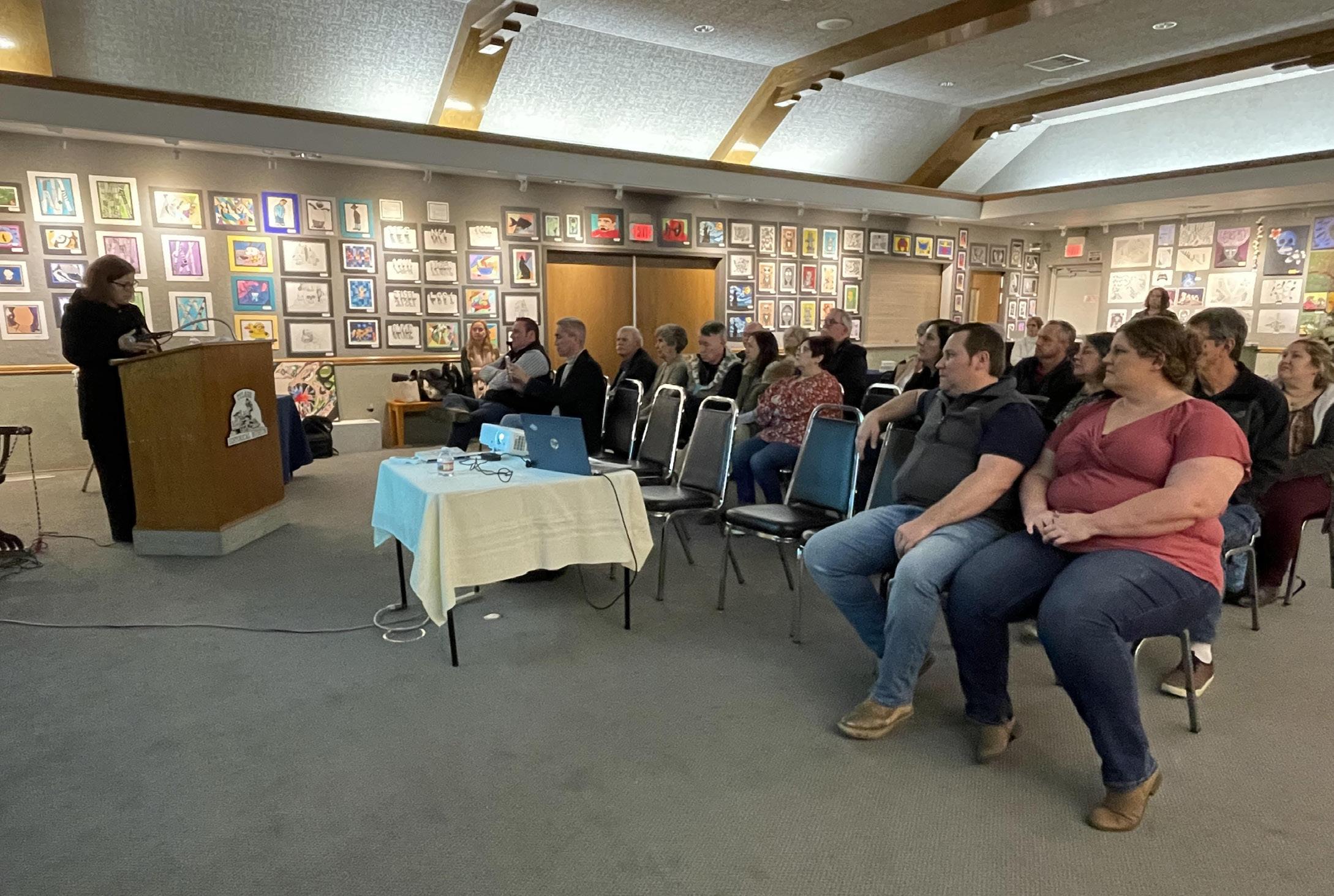
A SATA- Azores Airlines delegation led by CEO Teresa Gonçalves visited Fresno State in late January of 2024 for a visit to the campus, a meeting lunch with the Deans, a meeting with President Saúl Jimenz-Sandoval, and a meeting with dignitaries in Fresno organized by Congressman Jim Costa. During the visit, the President of SATA announced an agreement to offer five students from Fresno State the opportunity to do an internship in the Azores, four from the Jordan College of Agricultural Science and Technology, and a fifth one to alternate between the College of Arts and Humanities and Social Science. Here are some pictures of that visit.
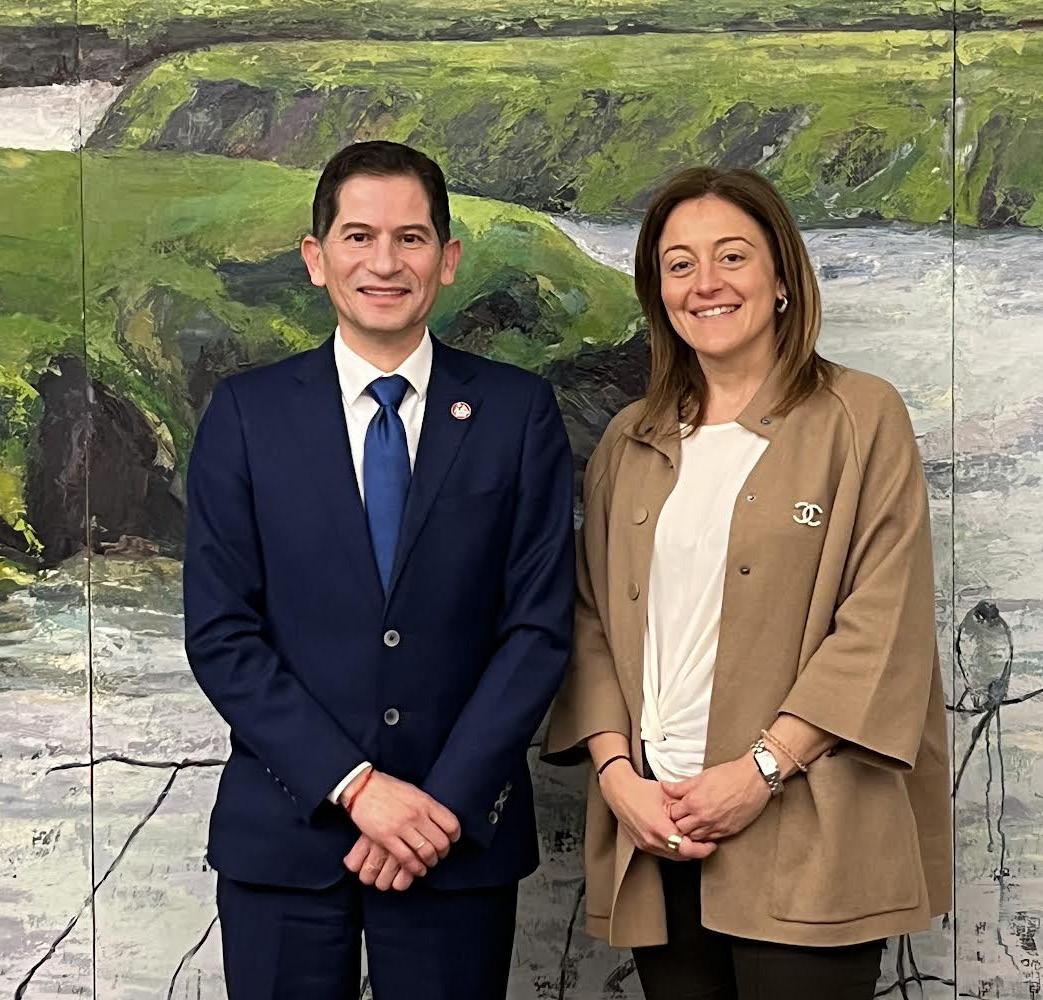


Em Almoço da denegação da SATA com responsáveis das faculdades da universidade e líderes comunitários.

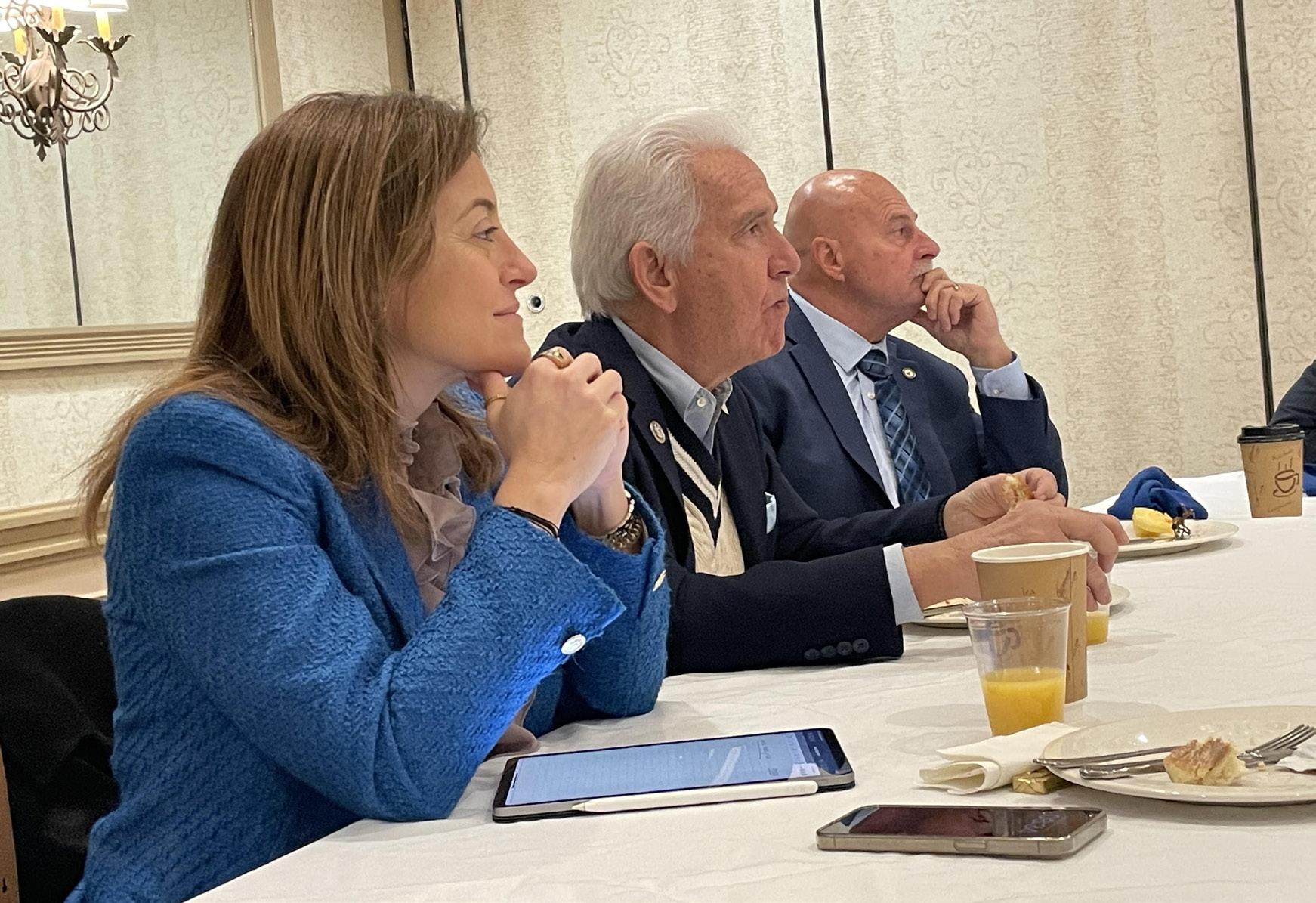 Visita da delegação da SATA ao centro de vitivinicultura da Faculdade de Ciências Agrárias.
Reunião da SATA com entidades municipais e do condado de Fresno, patrocinado pelo Congressista Jim Costa, antes da visita da delegação ao aeroporto internacional de Fresno.
Visita da delegação da SATA ao centro de vitivinicultura da Faculdade de Ciências Agrárias.
Reunião da SATA com entidades municipais e do condado de Fresno, patrocinado pelo Congressista Jim Costa, antes da visita da delegação ao aeroporto internacional de Fresno.
PBBI Events
Held this Spring Semester of 2024 -From January until march 31st
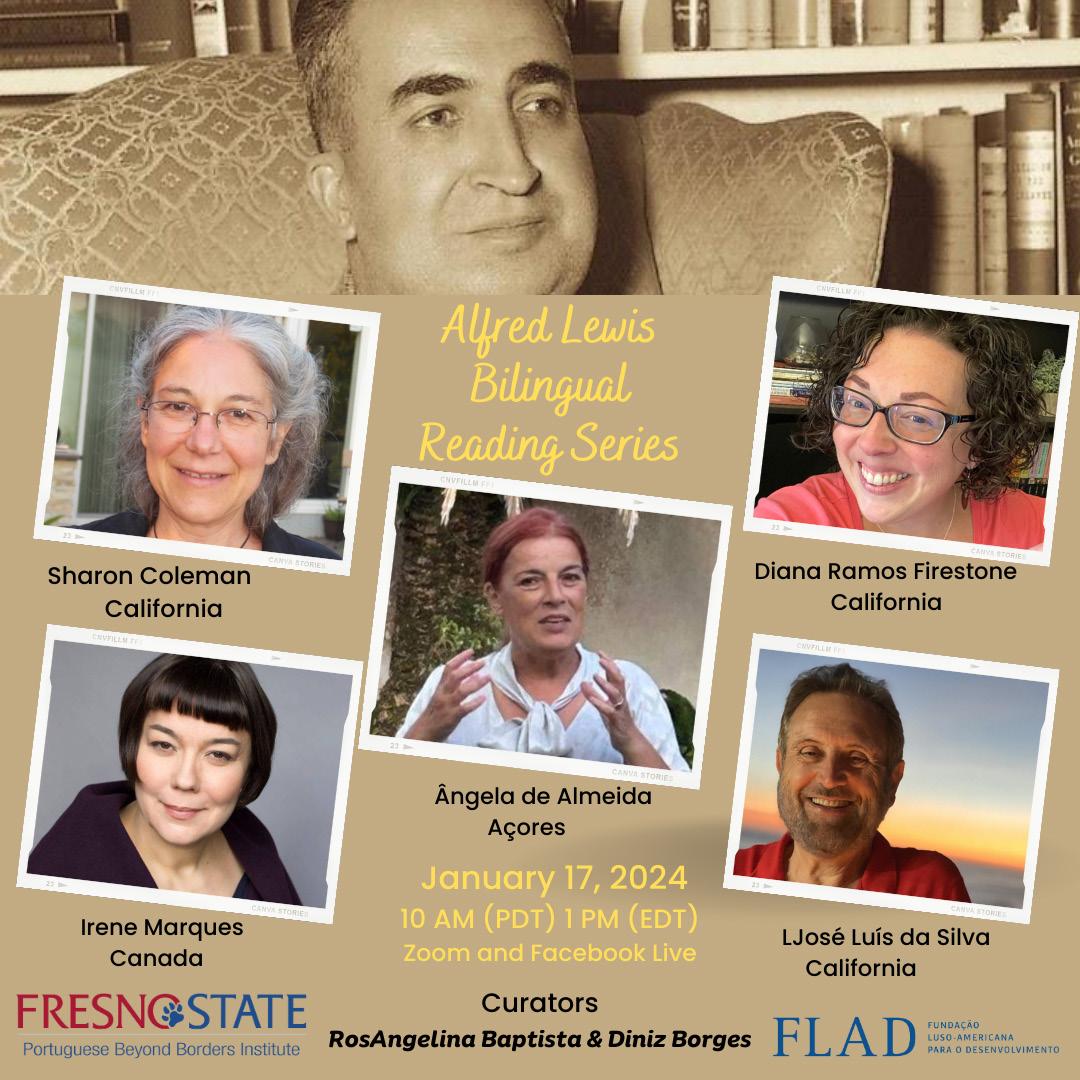

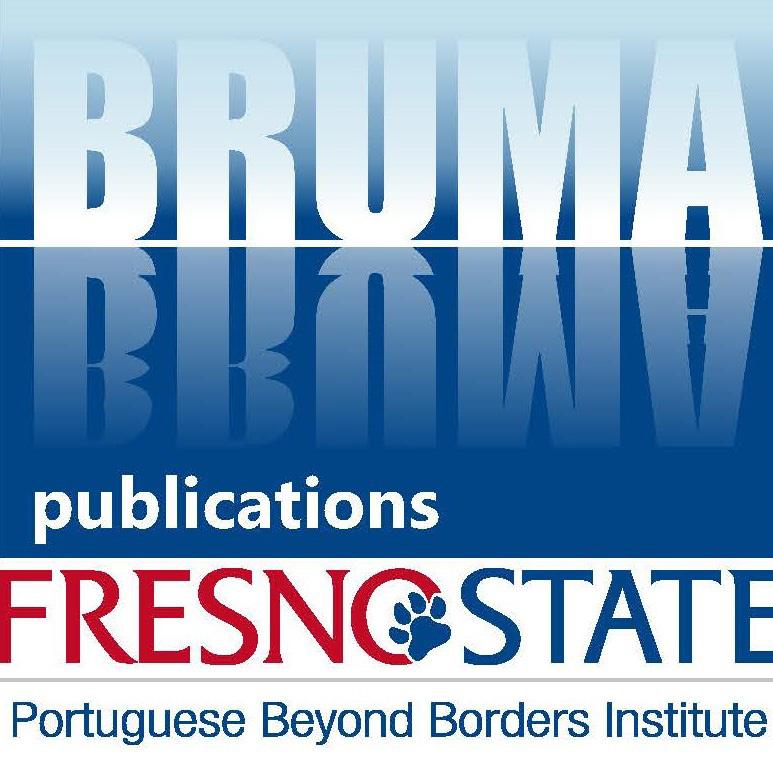



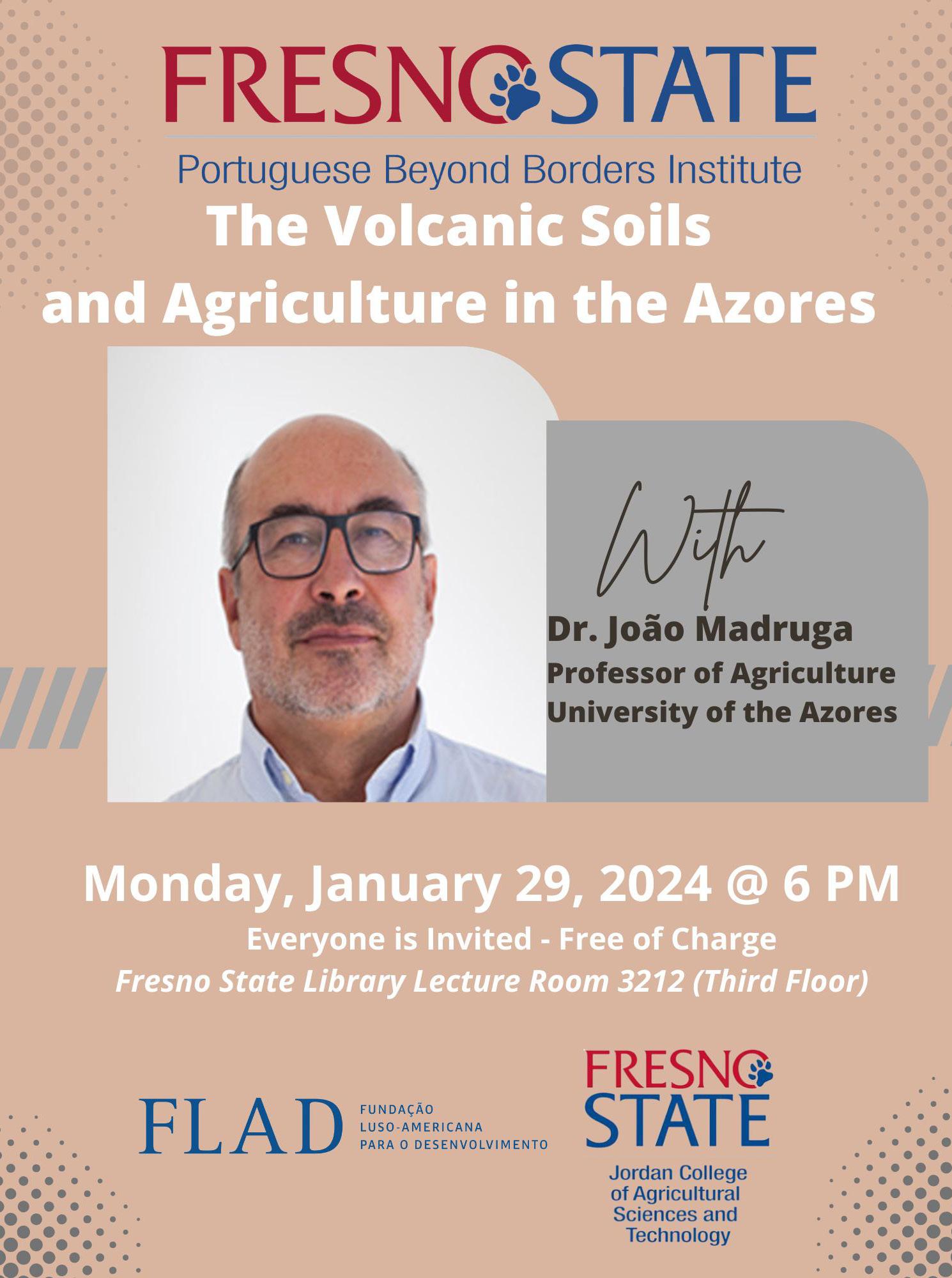
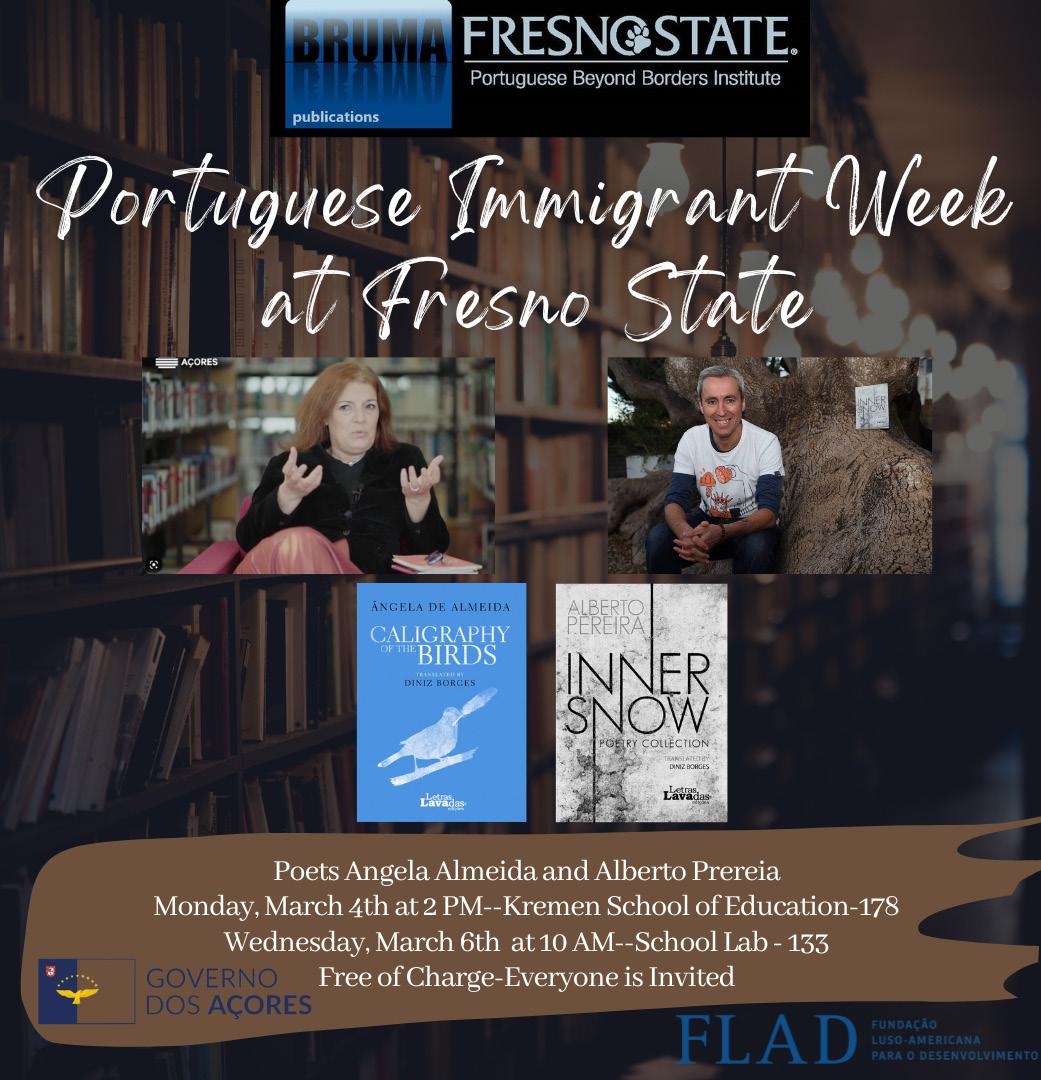
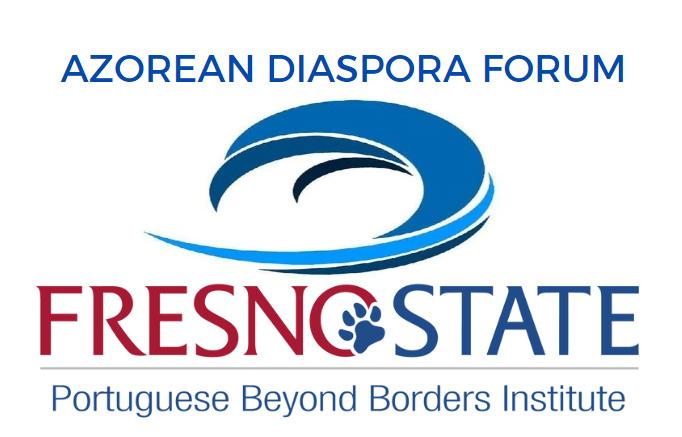


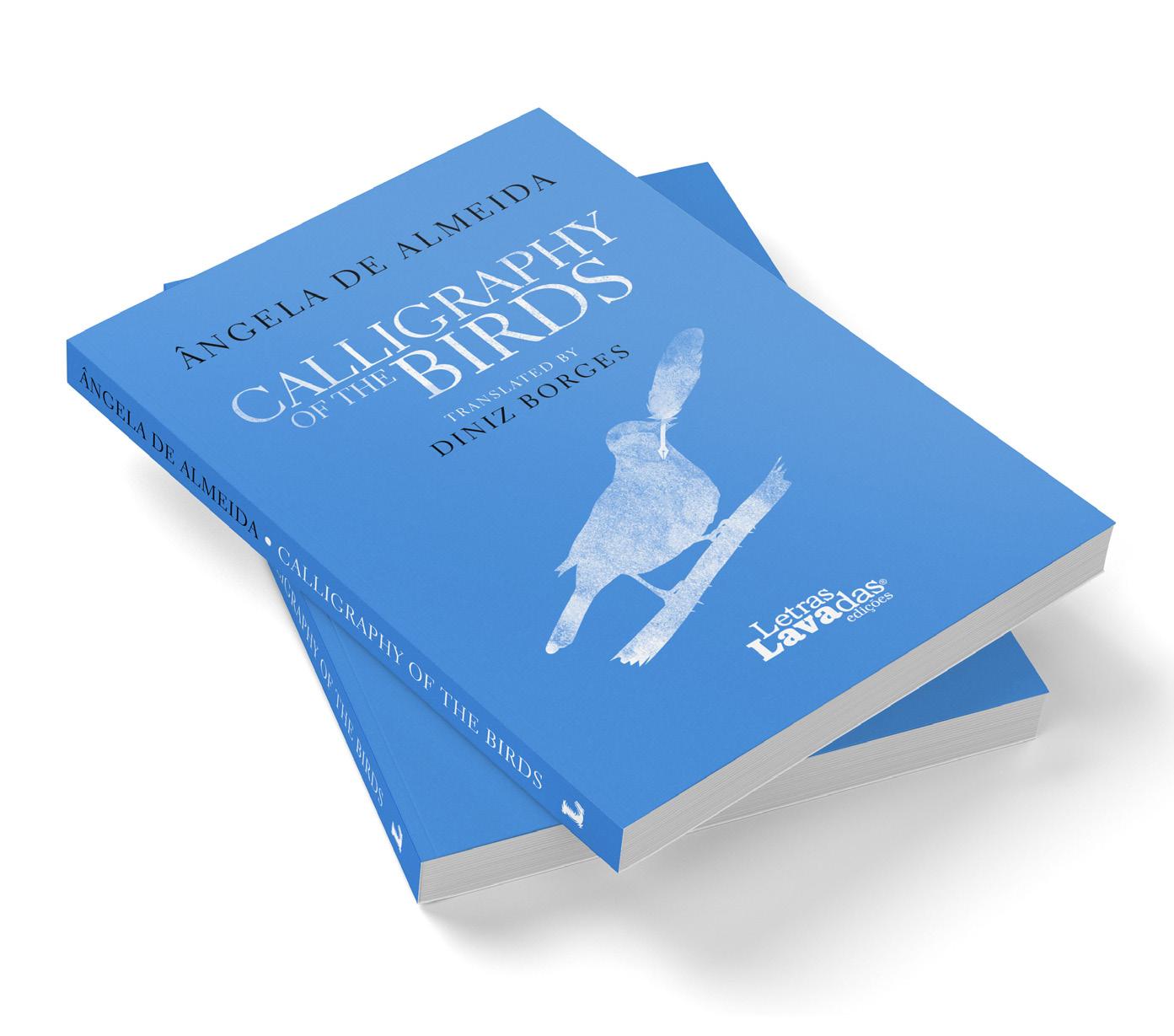























 Visita da delegação da SATA ao centro de vitivinicultura da Faculdade de Ciências Agrárias.
Reunião da SATA com entidades municipais e do condado de Fresno, patrocinado pelo Congressista Jim Costa, antes da visita da delegação ao aeroporto internacional de Fresno.
Visita da delegação da SATA ao centro de vitivinicultura da Faculdade de Ciências Agrárias.
Reunião da SATA com entidades municipais e do condado de Fresno, patrocinado pelo Congressista Jim Costa, antes da visita da delegação ao aeroporto internacional de Fresno.











